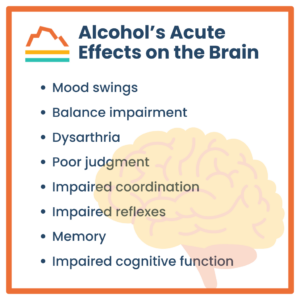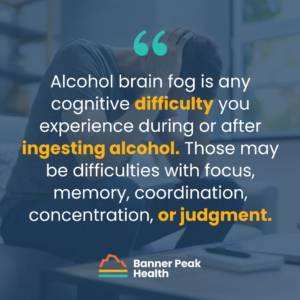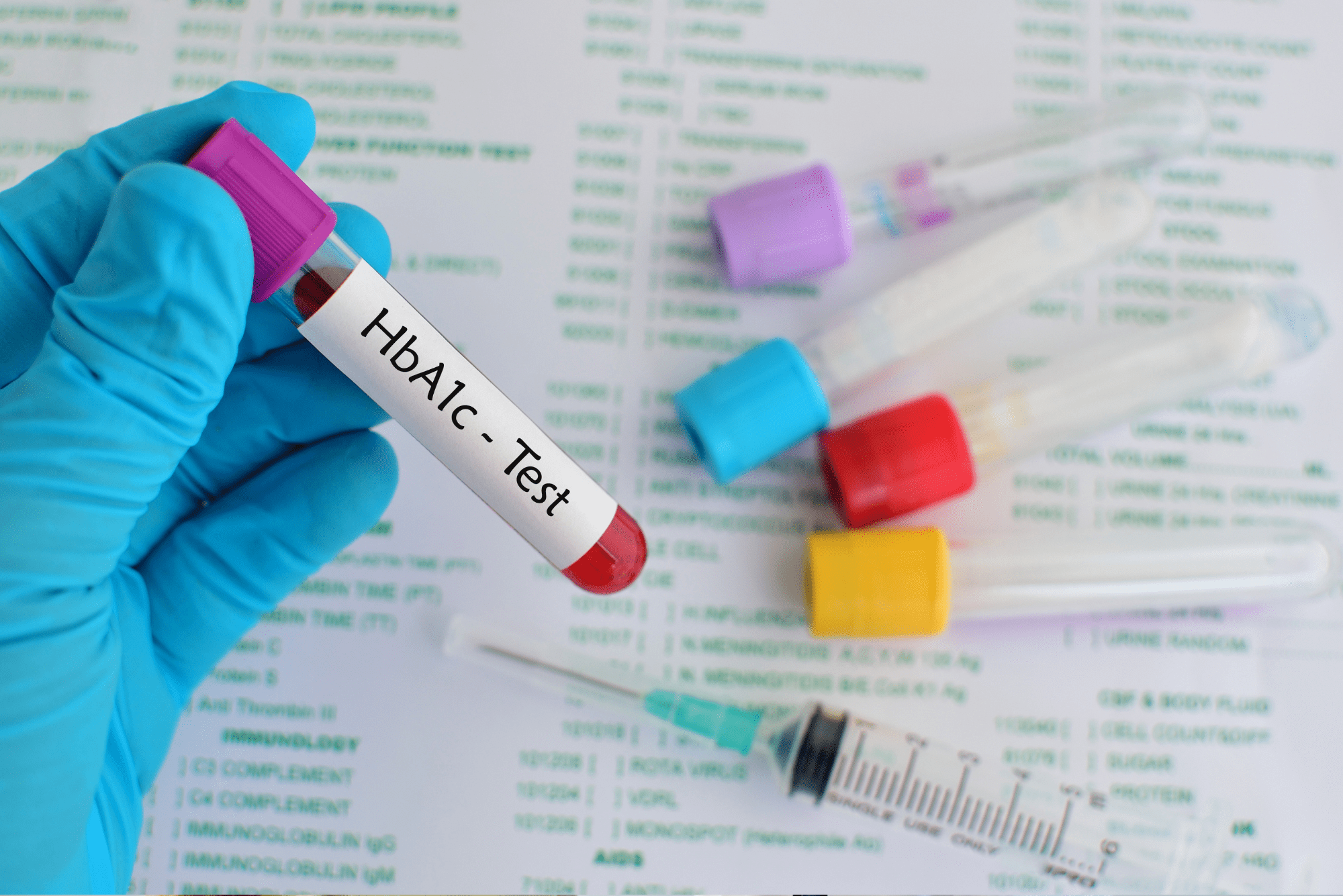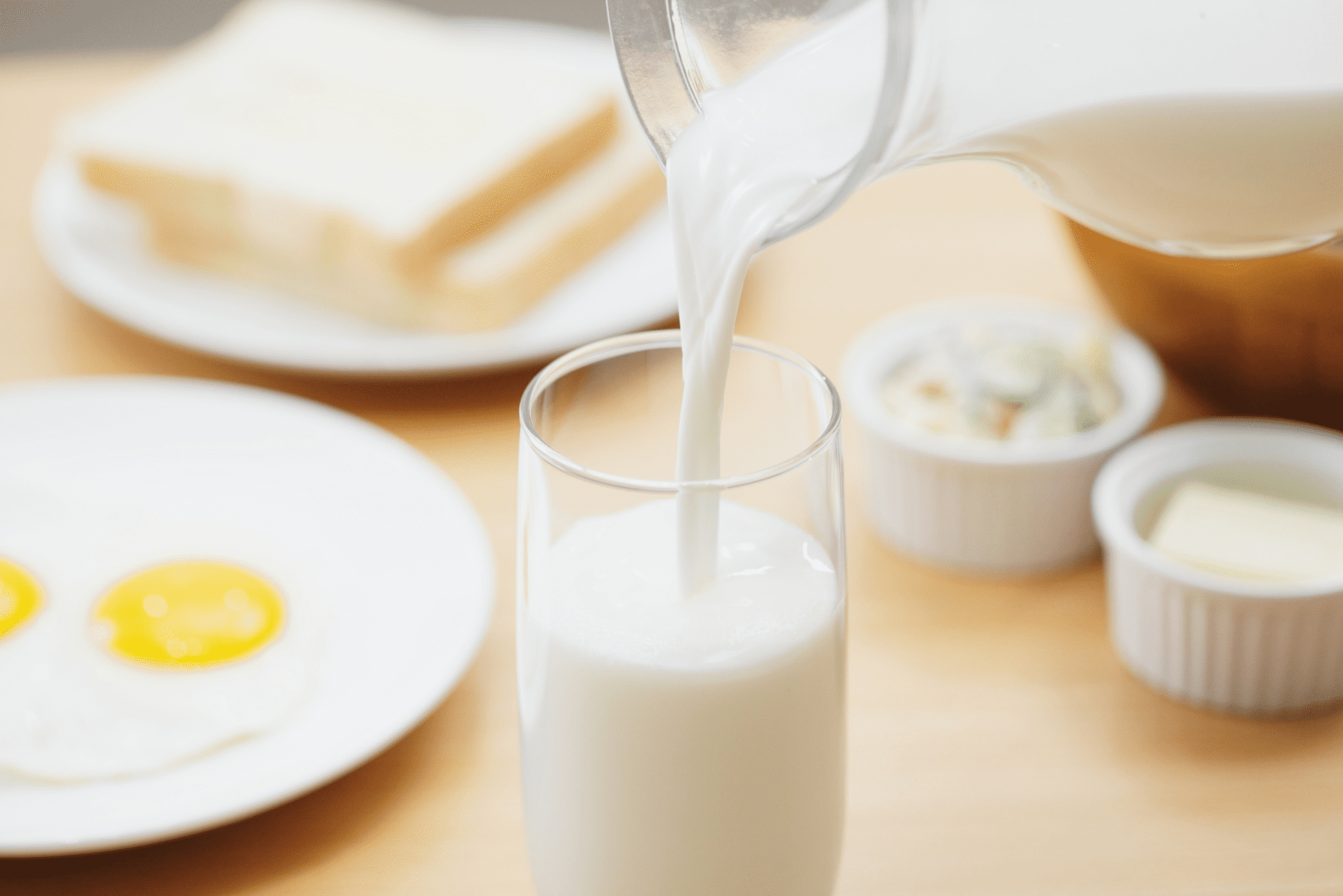We’ve all had too much to drink and regretted that decision. But what are the long-term effects of alcohol on the brain? Can you mitigate those effects?
What Is Alcohol Brain Fog?
Alcohol brain fog is any cognitive difficulty you experience during or after ingesting alcohol. Those may be difficulties with focus, memory, coordination, concentration, or judgment.
It’s a broad definition, so we’ll divide it into three categories of effects: immediate, day after, and long-term.
 Alcohol’s Acute Effects on the Brain
Alcohol’s Acute Effects on the Brain
Acute ingestion of alcohol (aka being drunk) has all sorts of consequences because of direct chemical effects on the brain, including:
- Mood swings
- Balance impairment
- Dysarthria
- Poor judgment
- Impaired coordination
- Impaired reflexes
- Memory
- Impaired cognitive function
If the amount of alcohol in your bloodstream reaches toxic levels, you can overdose, which can be fatal. High alcohol concentrations can cause loss of consciousness, temperature dysregulation, impaired breathing, and heart failure.
Acute alcohol ingestion also has a high mortality risk because of direct toxicity and associated behaviors. For example, drunk people are much more likely to die because of falls, motor vehicle accidents, and fights. In 2022, 32% of all driving fatalities were a result of alcohol-impaired driving.
Sex and alcohol don’t always pair well, either. Of the 25% of women who have been victims of sexual assault (a conservative estimate), half of those cases involved alcohol consumption by the perpetrator, the victim, or both.
Why Does Alcohol Consumption Lead to Bad Decisions?
Alcohol increases the sedative effects of the neurotransmitter GABA (gamma-aminobutyric acid), which blocks certain signals from the central nervous system. It also dulls the excitatory neurotransmitter glutamate, which plays a key role in learning, memory, sleep, and mood.
Alcohol also enhances dopamine, leading to the euphoria associated with alcohol consumption.
Finally, alcohol disrupts communication between the brain’s neurons, which causes more global side effects like loss of balance, memory, speech, and judgment.
The Next-Day Effects of Alcohol on the Brain
The day after you drink, you may experience a hangover, among other symptoms.
Alcohol is a diuretic, meaning it causes fluid loss in the body. It makes you thirsty, dehydrated, and susceptible to electrolyte imbalance. Unless you correct the problem, you’ll likely experience weakness, headache, dizziness, and cognitive impairment.
Alcohol can also interfere with the production and metabolism of glucose, leading to low blood sugar, fatigue, and mood and cognitive changes.
It can also disrupt sleep — a separate pathway for cognitive impairment. If drinking too much ruins your sleep, you may wake up with a double dose of brain fog.
Even after a single day of drinking, you may experience a mini-withdrawal effect. You may feel restlessness and anxiety associated with levels of alcohol in the brain.
Long-Term Effects of Alcohol on the Brain
Alcohol is a neurotoxin. That means that after enough exposure, it shrinks both individual neurons and the entire brain. When particular regions of the brain, such as the hippocampus, are chronically exposed to alcohol, memory, mood, behavior, and cognition suffer.
When you ingest enough alcohol over time, it interferes with the absorption of the B vitamin thiamine because your body uses the thiamine to metabolize alcohol. This leads to Wernicke-Korsakoff syndrome, which is associated with mental confusion, memory, and eye movement disorder.
Chronic alcohol use leads to alcohol use disorder, which is associated with cravings and withdrawal symptoms. Alcohol use disorder can exacerbate underlying concomitant depression and anxiety.
Perhaps most distressing, alcohol use in children and young adults can arrest or impair the completion of brain development and can lead to long-term brain impairment. This remains true even after they stop ingesting alcohol.
How Can We Minimize Alcohol’s Effects?
Or, more specifically, how can we minimize alcohol’s effects relative to the three time spans we discussed above (immediate, next-day, and long-term)?
Immediate
Be cautious about your consumption rate. We consider the “standard drink” to be 12 oz. of beer, 5 oz. of wine, or 1.5 oz. of distilled spirits per hour. However, every pour is highly variable.
There’s also variability in individual susceptibilities. Women tend to weigh less than men and are enzymatically prone to not processing alcohol as quickly. Therefore, they’re more likely to feel the acute effects of alcohol sooner.
Food slows alcohol absorption. Staying hydrated also helps mitigate adverse effects.
As for other side effects of drinking, like poor judgment, it’s best to plan ahead. Don’t drink yourself into oblivion. Take an Uber home. Make sure you’re with people you trust. Don’t let alcohol lead you anywhere unsafe.
Next-Day
Eating and drinking will help with a hangover. Electrolytes are best. Coffee or tea can also help in moderation.
Expect your sleep to be impaired, so sleep in or take a nap if you can.
Long-Term
There’s no safe way to be a chronic heavy drinker. The best thing to do is seek help.
Today’s Takeaways
Alcohol can be enjoyed in moderation, and there are ways to mitigate the effects of overindulging. However, excessive drinking is dangerous, especially for young people.
If you need help cutting alcohol out of your life, we’re here to help and would be happy to talk. Schedule an appointment today.

Barry Rotman, MD
For over 30 years in medicine, Dr. Rotman has dedicated himself to excellence. With patients’ health as his top priority, he opened his own concierge medical practice in 2007 to practice medicine in a way that lets him truly serve their best interests.




